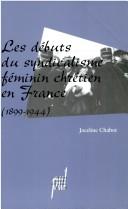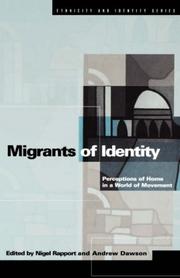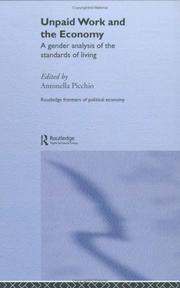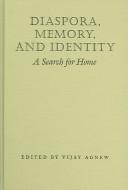| Listing 1 - 10 of 17 | << page >> |
Sort by
|
Book
ISBN: 9781137588012 Year: 2017 Publisher: New York : Palgrave Macmillan,
Abstract | Keywords | Export | Availability | Bookmark
 Loading...
Loading...Choose an application
- Reference Manager
- EndNote
- RefWorks (Direct export to RefWorks)
This book explores the impact of transnational migration on the views, feelings, and practices of home among migrants. Home is usually perceived as what placidly lies in the background of everyday life, yet migrants’ experience tells a different story: what happens to the notion of home, once migrants move far away from their “natural” bases and search for new ones, often under marginalized living conditions? The author analyzes in how far migrants’ sense of home relies on a dwelling place, intimate relationships, memories of the past, and aspirations for the future–and what difference these factors make in practice. Analyzing their claims, conflicts, and dilemmas, this book showcases how in the migrants’ case, the sense of home turns from an apparently intimate and domestic concern into a major public question.
Sociology of environment --- Migration. Refugees --- migration [function] --- dwellings --- Migratie --- Sociaal werk --- Immigrants --- Home. --- Social conditions. --- Housing --- Refugees --- Home --- Réfugiés --- Foyer --- Conditions sociales --- Logement

ISBN: 2729707301 2729710825 9782729707309 Year: 2003 Publisher: Lyon: Presses universitaires de Lyon,
Abstract | Keywords | Export | Availability | Bookmark
 Loading...
Loading...Choose an application
- Reference Manager
- EndNote
- RefWorks (Direct export to RefWorks)
De 1899 à 1944 naît et se développe en France un mouvement original et méconnu, le syndicalisme féminin chrétien. Exclusivement féminines, ces organisations sont animées par un militantisme où se mêlent foi chrétienne, apostolat et doctrine sociale de l'Église, centralité de la famille et refus de la lutte des classes. Tout en étant affiliés à la CFTC, les syndicats féminins chrétiens conservent une large autonomie organisationnelle qui favorise l'émergence de fortes personnalités. Ces militantes développent un discours et des pratiques axés sur la défense du travail féminin mais aussi sur la possibilité pour les femmes mariées de rester au foyer. Entre conservatisme et modernité, les syndicalistes chrétiennes offrent une lecture du rôle et de la place des femmes à partir d'un double schéma référentiel qui renvoie à leur expérience syndicale et à leur foi catholique. À la croisée de l'histoire des femmes et de l'histoire sociale, ce livre propose un regard critique sur une expérience singulière dans le paysage syndical français.
Women in trade-unions --- Catholic labor unions --- Femmes dans les syndicats --- Syndicats catholiques --- History --- Histoire --- Women labor union members --- History. --- Sociology --- Women's Studies --- syndicalisme --- syndicalisme féminin chrétien --- syndicat --- Église catholique --- catholicisme --- travail des femmes --- femme au foyer

ISBN: 1859739997 1859739946 Year: 1998 Volume: *2 Publisher: Oxford New York Berg
Abstract | Keywords | Export | Availability | Bookmark
 Loading...
Loading...Choose an application
- Reference Manager
- EndNote
- RefWorks (Direct export to RefWorks)
Sociology of minorities --- Identiteit (Psychologie) --- Identity (Psychology) --- Identité (Psychologie) --- Personal identity --- Home --- Emigration and immigration --- Migration, Internal --- Civilization, Modern --- Foyer --- Emigration et immigration --- Migration intérieure --- Civilisation --- Psychological aspects --- Social aspects --- Social aspects. --- Aspect psychologique --- Aspect social --- Psychological aspects. --- Identity (Psychology). --- Migration intérieure --- Identité (Psychologie) --- Migration [Internal ] --- Civilization [Modern ] --- 1950-.... --- Internal migration --- Mobility --- Population geography --- Internal migrants --- Personality --- Self --- Ego (Psychology) --- Individuality --- Families --- Marriage
Book
ISBN: 2869061846 2821821085 2869063245 Year: 2004 Volume: 8 Publisher: Presses universitaires François-Rabelais
Abstract | Keywords | Export | Availability | Bookmark
 Loading...
Loading...Choose an application
- Reference Manager
- EndNote
- RefWorks (Direct export to RefWorks)
Y-a-t'il une pertinence à étudier la place et le rôle des femmes dans les villes ? La ville est un miroir concret des normes de genres et elle est aussi, à travers les choix politiques, l'un des outils de la régulation sociale. Comme expression de la différenciation des sexes, la ville donne à voir les normes qui régissent les comportements collectifs en la matière dans ce qu'elles ont de légal, d'implicite, de caché, d'interdit, de valorisé. Elle montre les archaïsmes et les évolutions, les transitions et les pérennités. Elle fonctionne comme une loupe permettant de mettre en évidence la matérialité de pratiques souvent symboliques. En rétro-action, cet éclairage des fonctionnements et dysfonctionnements sociaux doit pouvoir servir les politiques urbaines en particulier pour leurs orientations vers l'égalité des droits. Du moins, pour autant que les rôles de sexe soient porteurs de dysfonctionnement, ce sur quoi l'analyse des situations urbaines nous éclaire. Les voies de recherche et leurs implications dans l'action politique, au sens le plus large, sont très vastes lorsqu'on confronte les études urbaines et les études sur le genre. Les textes de cet ouvrage amorcent des débats sur la sécurité, les choix résidentiels, la mobilité, l'émancipation notamment. Mais au delà, ce sont les liens entre l'action et la connaissance, la ville et les normes sociales, les territoires urbains et leurs significations qui sont interrogés. La réciprocité de l'étude et de l'action est au cœur de la réflexion sur Femmes et Villes. Comment la ville peut-elle informer la réflexion sur les normes sociales de sexe ? En quoi cela peut-il servir les politiques urbaines ? Voilà les deux questions qui traversent les études présentées à Tours lors du colloque Femmes et Villes de mars 2002, dont cet ouvrage est la restitution.
Urban women --- City and town life --- Sociology, Urban --- Femmes en milieu urbain --- Vie urbaine --- Sociologie urbaine --- Congresses. --- Congresses --- Congrès --- Sociology & Social History --- Social Sciences --- Communities - Urban Groups --- Congrès --- homosexualité féminine --- mobilités --- féminisme --- femme au foyer --- rapports de genre --- espace public --- femmes --- domination masculine
Book
ISBN: 9781107078093 9781139939607 9781107434998 9781316073964 1316073963 1139939602 1107078091 131608342X 1316055051 1316076334 1316081060 1107434998 131607160X 1316078701 1322177163 1316057429 Year: 2014 Publisher: Cambridge : Cambridge University Press,
Abstract | Keywords | Export | Availability | Bookmark
 Loading...
Loading...Choose an application
- Reference Manager
- EndNote
- RefWorks (Direct export to RefWorks)
As a serious drama set in an ordinary middle-class home, Ibsen's A Doll's House established a new politics of the interior that was to have a lasting impact upon twentieth-century drama. In this innovative study, Nicholas Grene traces the changing forms of the home on the stage through nine of the greatest of modern plays and playwrights. From Chekhov's The Cherry Orchard through to Williams's A Streetcar Named Desire, domestic spaces and personal crises have been employed to express wider social conditions and themes of class, gender and family. In the later twentieth century and beyond, the most radically experimental dramatists created their own challenging theatrical interiors, including Beckett in Endgame, Pinter in The Homecoming and Parks in Topdog/Underdog. Grene analyses the full significance of these versions of domestic spaces to offer fresh insights into the portrayal of the naturalistic environment in modern drama.
Domestic drama --- Drama --- Théâtre (genre littéraire) --- Home in literature. --- Foyer --- Families in literature --- Famille --- History and criticism. --- Histoire et critique. --- Dans la littérature. --- Families in literature. --- Bourgeois drama --- Family in literature --- Drama, Modern --- Dramas --- Dramatic works --- Plays --- Playscripts --- Stage --- Literature --- Dialogue --- Philosophy --- Théâtre (genre littéraire) --- Dans la littérature.
Book
ISBN: 2735109925 2735115836 Year: 2003 Volume: 25 Publisher: Paris Maison des sciences de l'homme
Abstract | Keywords | Export | Availability | Bookmark
 Loading...
Loading...Choose an application
- Reference Manager
- EndNote
- RefWorks (Direct export to RefWorks)
Depuis les années 1970, grandir dans une famille recomposée concerne un nombre croissant d’individus. Des liens inédits unissent beaux-parents et beaux-enfants, demi et « quasi » frères et sœurs, dans une ordonnance différente des lieux et des temps de la vie familiale. Apparaissent de nouvelles manières de vivre et de penser les liens de famille, qui interrogent nos repères traditionnels. Que signifie être père ou mère, beau-père ou belle-mère dans les familles recomposées ? Est-ce donner la vie, donner son nom et ses biens, nourrir et élever un enfant et le chérir, l’adopter ? Que signifie être frère ou sœur ? Avoir eu les mêmes parents biologiques, avoir partagé son enfance dans un même lieu ? Des relations amoureuses et sexuelles entre « quasi » frères et sœurs sont-elles licites ? C’est à ces questions que tente de répondre ce livre à travers l’exploration ethnographique d’une trentaine d’histoires familiales, où le point de vue des « beaux-enfants », devenus adultes, constitue le principal éclairage. A partir de leurs récits, mis en perspective par le recours à l’histoire et à l’anthropologie, Agnès Martial met au jour l’incertitude des termes, des rôles et des statuts qui constituent la trame familiale recomposée dans notre société. En interrogeant les relations entre générations, souvent perturbées par la séparation du couple parental et la notion d’inceste telle qu’elle émerge des pratiques, des discours et du droit, son analyse des familles recomposées permet de mieux comprendre le contenu des relations de filiation, de germanité et d’alliance dans les sociétés occidentales contemporaines.
Sociology of the family. Sociology of sexuality --- Ethnology. Cultural anthropology --- Remarriage --- Kinship --- Parent and child --- Brothers and sisters --- Remariage --- Parenté --- Parents et enfants --- Frères et soeurs --- Parenté --- Frères et soeurs --- Parenting --- Families --- Familles recomposées. --- Belles-familles. --- Beaux-parents. --- Beaux-enfants. --- Stiefgezinnen. --- Familierelaties. --- Etnografie. --- 4.280. --- Parent behavior --- Parental behavior in humans --- Child rearing --- Parenthood --- Siblings. --- parenté --- famille recomposée --- parentalité --- ethnologie de la France --- foyer familial

ISBN: 0415296943 0415407060 1134433557 1280175184 0203987284 1134433549 Year: 2003 Volume: 46 Publisher: London ; New York : Routledge,
Abstract | Keywords | Export | Availability | Bookmark
 Loading...
Loading...Choose an application
- Reference Manager
- EndNote
- RefWorks (Direct export to RefWorks)
In economics, the voluntary sector is surprisingly understudied. In order to fully understand economics, unpaid and voluntary work needs to be taken into account and afforded the same status as paid activities. This book constitutes a rigorous economic analysis with special emphasis on gender issues and covers every conceivable angle of unpaid work and all its ramifications for the modern economy.The unified vision offered by this group of leading contributors ensures this book is a work of excellent quality. There is every chance it will become a seminal study on unpaid work and as
Wages --- Women --- Salaires --- Femmes --- Housewives --- Social conditions. --- Femmes au foyer --- Conditions sociales --- Voluntarism --- Women. --- Economic aspects. --- Women employees --- Compensation --- Departmental salaries --- Earnings --- Pay --- Remuneration --- Salaries --- Wage-fund --- Wage rates --- Working class --- Voluntary action --- Volunteer work --- Volunteering --- Volunteerism --- Salaries, etc. --- Income --- Labor costs --- Compensation management --- Cost and standard of living --- Prices --- Feminism --- National service --- Associations, institutions, etc. --- extended --- income --- equivalency --- scale --- womens --- labour --- market --- convenience --- consumption --- double
Book
ISBN: 9080799513 Year: 2003 Publisher: Leuven Davidsfonds
Abstract | Keywords | Export | Availability | Bookmark
 Loading...
Loading...Choose an application
- Reference Manager
- EndNote
- RefWorks (Direct export to RefWorks)
rivieren --- Regional documentation --- Western Scheldt --- Verdronken Land van Saeftinghe --- Natuurreservaten --- Réserves naturelles --- Verdronken Land van Saaftinge --- Zeeuws-Vlaanderen ; natuur --- Walcheren ; natuur --- Zuid-Beveland ; natuur --- C3 --- Europese Katholieke Foyer (circa 1978) --- natuur --- fauna --- flora --- #A0403A --- 571 Natuurbescherming --- Verdonken Land van Saeftinge --- Westerschelde --- natuurgebieden --- Nederland --- eu-nede 570.6 --- 570.5 --- natuurbeheer (lt) --- natuurbescherming (lt) --- 502.7 natuurgebieden --- (493.13) oost-vlaanderen --- 985.2 --- Belgische kust --- Verdronken Land van Saeftinge --- 578.5 --- Kunst en cultuur --- natuurreservaten en -monumenten - Nederland --- NED The Netherlands --- Polders --- The Netherlands --- Westerschelde estuary --- Zeeland --- birds --- flora and vegetation --- nature
Book
ISBN: 1280116617 9786613520906 0520952138 9780520952133 9781280116612 9780520272217 0520272218 661352090X Year: 2012 Publisher: University of California Press
Abstract | Keywords | Export | Availability | Bookmark
 Loading...
Loading...Choose an application
- Reference Manager
- EndNote
- RefWorks (Direct export to RefWorks)
Many animals build shelters, but only humans build homes. No other species creates such a variety of dwellings. Drawing examples from across the archaeological record and around the world, archaeologist Jerry D. Moore recounts the cultural development of the uniquely human imperative to maintain domestic dwellings. He shows how our houses allow us to physically adapt to the environment and conceptually order the cosmos, and explains how we fabricate dwellings and, in the process, construct our lives. The Prehistory of Home points out how houses function as symbols of equality or proclaim the social divides between people, and how they shield us not only from the elements, but increasingly from inchoate fear.
Dwellings, Prehistoric. --- Architecture, Prehistoric. --- Home. --- Social archaeology. --- Archaeology --- Families --- Marriage --- Prehistoric architecture --- Prehistoric dwellings --- Methodology --- Architecture, Prehistoric --- Home --- Habitations préhistoriques --- Architecture préhistorique --- Foyer --- Archéologie sociale --- Architecture, Primitive --- ancient history. --- anthropology. --- archaeological record. --- archaeology history. --- books by archaeologists. --- books for history lovers. --- books for reluctant readers. --- cultural development of humans. --- cultural development. --- discussion books. --- domestic dwellings. --- easy to read. --- engaging. --- evolution of homes. --- genre nonfiction. --- history of houses. --- history. --- human history. --- leisure reads. --- page turner. --- politics and homes. --- prehistory. --- researched books. --- shelters vs homes. --- social divides. --- the prehistory of home. --- vacation reads.

ISBN: 0802093744 9780802090331 0802090338 9780802093745 1281991759 9786611991753 1442673877 9781442673878 9781281991751 6611991751 0195418913 Year: 2005 Publisher: Toronto : University of Toronto Press,
Abstract | Keywords | Export | Availability | Bookmark
 Loading...
Loading...Choose an application
- Reference Manager
- EndNote
- RefWorks (Direct export to RefWorks)
Memories establish a connection between a collective and individual past, between origins, heritage, and history. Those who have left their places of birth to make homes elsewhere are familiar with the question, "Where do you come from?" and respond in innumerable well-rehearsed ways. Diasporas construct racialized, sexualized, gendered, and oppositional subjectivities and shape the cosmopolitan intellectual commitment of scholars. The diasporic individual often has a double consciousness, a privileged knowledge and perspective that is consonant with postmodernity and globalization. The essays in this volume reflect on the movements of people and cultures in the present day, when physical, social, and mental borders and boundaries are being challenged and sometimes successfully dismantled. The contributors - from a variety of disciplinary perspectives - discuss the diasporic experiences of ethnic and racial groups living in Canada from their perspective, including the experiences of South Asians, Iranians, West Indians, Chinese, and Eritreans. Diaspora, Memory, and Identity is an exciting and innovative collection of essays that examines the nuanced development of theories of Diaspora, subjectivity, double-consciousness, gender and class experiences, and the nature of home.
Autobiographical memory --- Canada (Province) --- Province of Canada --- Dominion of Canada --- Ḳanadah --- Ḳanade --- Kanada (Dominion) --- Chanada --- كندا --- Канада --- Καναδάς --- Kanadas --- Republica de Canadá --- Dominio del Canadá --- Kanado --- کانادا --- Ceanada --- Yn Chanadey --- Chanadey --- 캐나다 --- Kʻaenada --- Kanakā --- קנדה --- カナダ --- Canadae --- Kanadaja --- 加拿大 --- קאנאדע --- Group identity --- Identity (Psychology) --- Home --- Families --- Marriage --- Memory --- Personal identity --- Personality --- Self --- Ego (Psychology) --- Individuality --- Collective identity --- Community identity --- Cultural identity --- Social identity --- Social psychology --- Collective memory --- Psychological aspects. --- Social aspects --- Canada --- Upper Canada --- Lower Canada --- Emigration and immigration --- Social aspects. --- Psychological aspects --- Group identity. --- Autobiographical memory. --- Marginality, Social. --- Hybridity (Social sciences) --- Culture fusion --- Fusion, Cultural --- Hybridism (Social sciences) --- Cultural relations --- Acculturation --- Assimilation (Sociology) --- Ethnicity --- Multiculturalism --- Cultural pluralism --- Exclusion, Social --- Marginal peoples --- Social exclusion --- Social marginality --- Culture conflict --- Social isolation --- Sociology --- People with social disabilities --- Jianada --- Kaineḍā --- Émigration et immigration --- Identité collective --- Identité (Psychologie) --- Mémoire épisodique --- Foyer --- Aspect psychologique --- Aspect social
| Listing 1 - 10 of 17 | << page >> |
Sort by
|

 Search
Search Feedback
Feedback About UniCat
About UniCat  Help
Help News
News